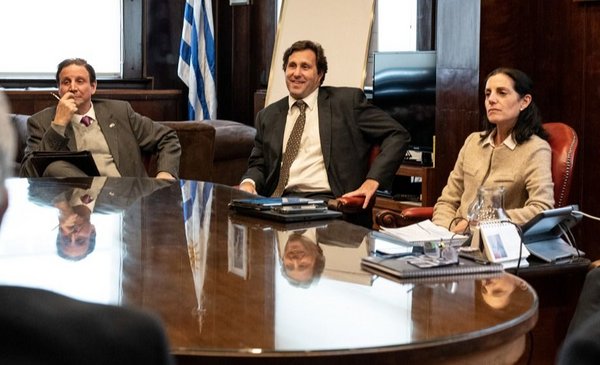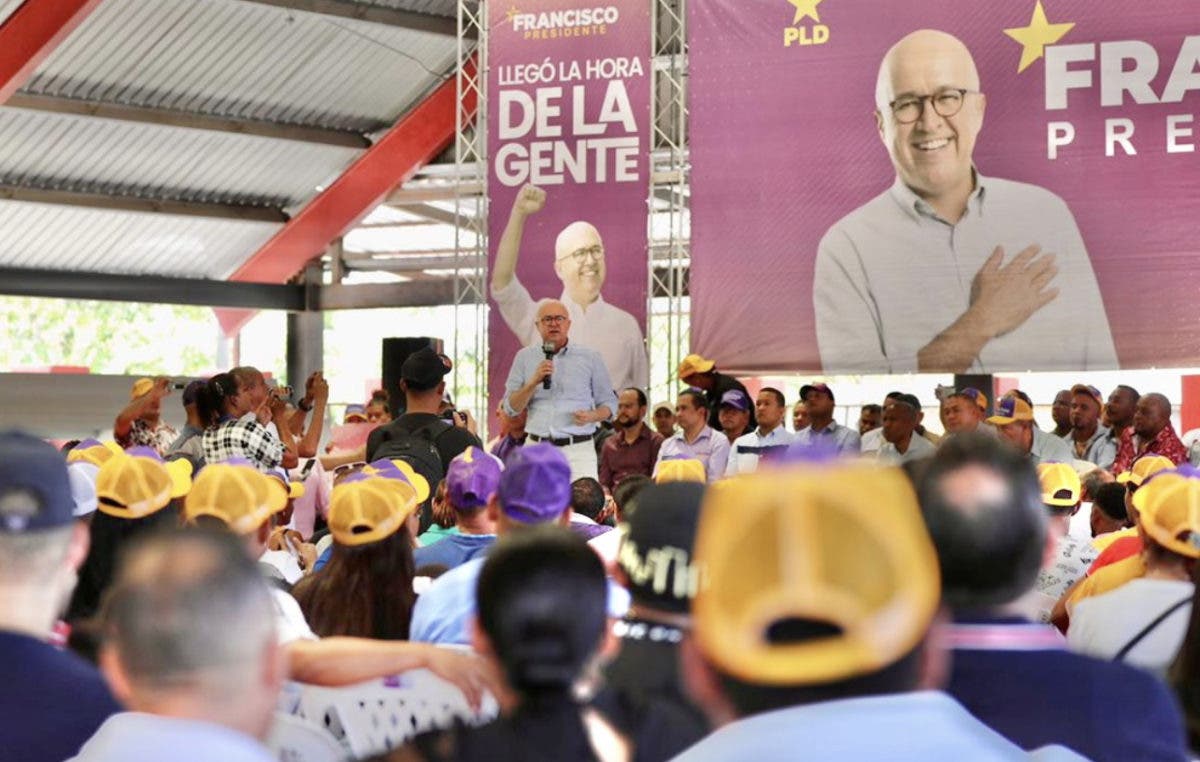The president of the Central Bank of Uruguay (BCU), Diego Labat, and the Minister of Economy and Finance, Lily Arbelechereceived the president of the Securities Market Promotion Commission (CPMV), Alberto Estradaand members of the public and private sector of said commission to exchange on the work carried out so far as well as on the lines of action to be developed, informed the monetary authority.
The CPMV was relaunched in May 2021 and during this period it had uninterrupted activity holding monthly meetings. Within the framework of the mission and functions granted by the Securities Market Law No. 18,627, the CPMV has developed initiatives to promote the operation and development of the stock market, several of which have already been put to the consideration of the relevant authorities.
The main issues on which the committee has worked focused on: 1) the process of issuing publicly offered securities in a “simplified” manner, adjusting it to the characteristics of our market, 2) initiatives to favor the development of investment funds and other aspects of publicly offered securities instruments, 3) evaluation of aspects of the market infrastructure and its link with global markets, 4) recommendations for the adaptation of aspects of the operation of the domestic market to adapt it to the use of the international market ( examples, type of securities placement procedures, categorization of type of investors), among other topics.
Progress with investment funds and pending issues
At the meeting, it was agreed to advance the work to promote the development of mutual funds, as they are an instrument that has the ease of accessing volumes and prices in financial assets (which the retailer would not access) and has an administration professional regarding the risk that the retail investor is unaware of, which is why it offers savings alternatives to these small savers.
Sources who participated in that meeting commented to The Observer that it was a “positive” meeting where “in-depth exchanges were made” about some tax incentives that the agents consider necessary to attend to give a greater boost to the development of the securities market in Uruguay.
Although some of these points were included in the Rendering of Accounts that Parliament is studying, other issues remained pending, such as the duplication of taxes (IRAE and IRPF) in the case of mutual funds. It is also hoped that a principle of “fiscal neutrality” is reached for these instruments and that the vehicle used to channel this type of emissions is not charged with taxes. In fact, some private initiatives did not prosper due to these tax disincentives, the sources revealed.
Another point that the agents understand should be improved is that in the new simplified issuance scheme approved by the Central Bank (BCU) for smaller companies, the figure of financial trusts was left aside.
Likewise, according to the BCU, the financing of small and medium-sized companies is one of the pillars of this process and in this sense “proposals are being studied that have the objective of generating sources of alternative financing in the stock market similar to those developed by other countries in the region”.
The factoring It is a financing alternative for small and medium-sized companies in many countries and in an extended way, which the president of the Commission for the Promotion of Values (Estrada) intends to promote in Uruguay. Factoring is basically a contract whereby a company transfers the future collection service of the existing credits and invoices in your favor and In exchange, he immediately obtains the money, with a discount. Estrada said that the Chilean case is an example to follow and was optimistic that Uruguay can follow that path in the future, taking advantage of the power and capillarity of public bodies such as UTE, Ancap or OSE They contract with thousands of vendors across the country.
Strada commented that Uruguay already has this instrument to squeeze it because the electronic invoicing system is active. “He has me very excited. This is what changes the equation to link the stock market with the real economy of Uruguay”, she considered in a talk organized by the National Academy of Economy and CFA Society Uruguay.
“The role of the stock market is to be an alternative and complementary vehicle to the banking system, which generates instruments that provide financing to Uruguayan companies and producers in local currency and in the long term, in order to promote the growth and development that it needs. the country,” the BCU said.







